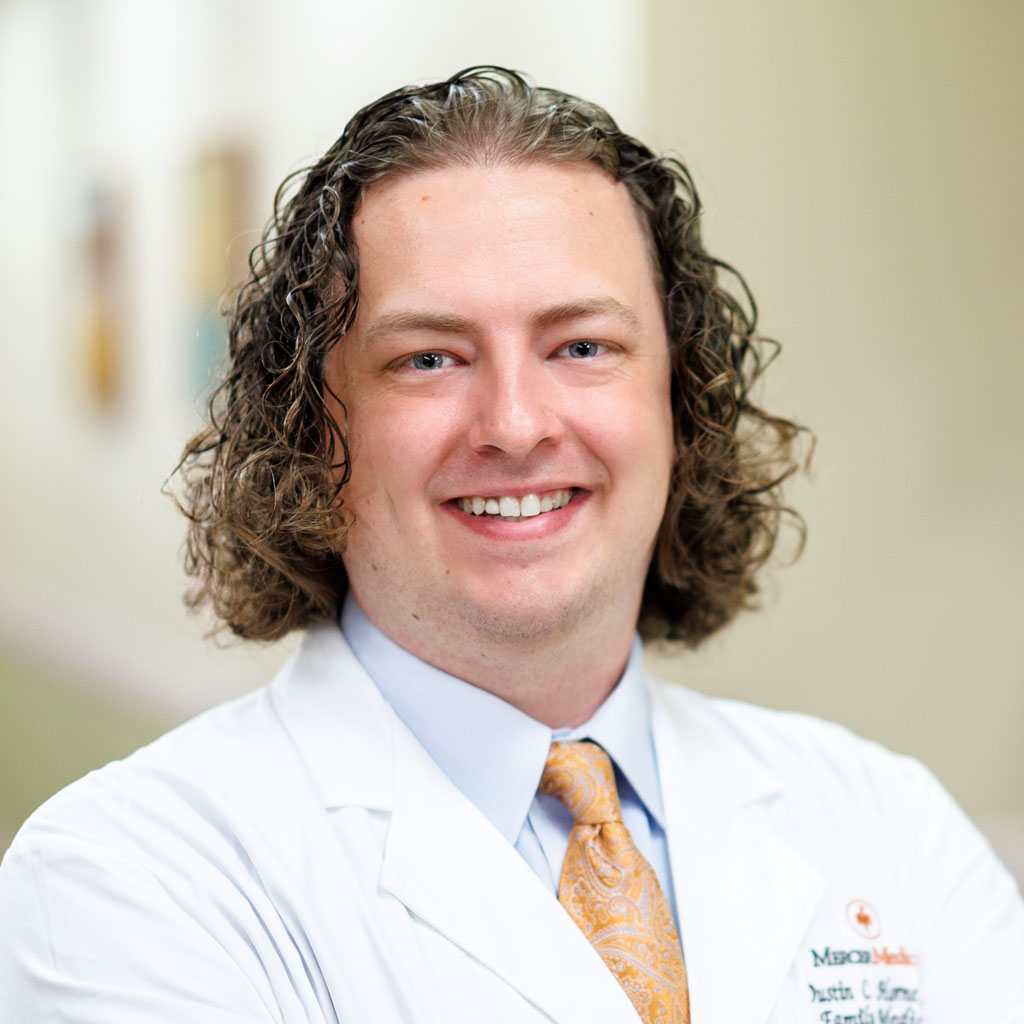Why Primary Care is the Foundation of Good Health
Posted on Oct 09, 2024
National Primary Care Week
In celebration of National Primary Care Week, we sat down with two of Mercer Medicine’s dedicated physicians, Dustin Horne, MD and Thomas Callier, MD to discuss the vital role primary care plays in keeping our communities healthy.
In this Q&A, both physicians share their insights on the importance of regular checkups, the role primary care plays in early detection of serious conditions, and why building strong patient-doctor relationships is key to better health outcomes. Whether you’re someone who hasn’t seen a doctor in years or you’re actively managing chronic conditions, this article highlights why primary care is crucial at every stage of life.
Thomas Callier, MD - Family Medicine
Mercer Medicine Taylor County
 What role does primary care play in managing overall wellness, not just treating illness?
What role does primary care play in managing overall wellness, not just treating illness?
Primary care is more than just treating illnesses. Our goal as primary care providers is to provide our patient with the best health that we can. By seeing patients who may not be "sick" and catching things before they become serious (and even life threatening) problems, we promote better overall health than just trying to "play catch-up" and treat illnesses after they have taken hold. And, as with most chronic medical conditions, promoting a healthy lifestyle is a major part of what we do as primary care providers.
How does primary care help in early detection of serious conditions like heart disease or cancer?
As a Family Medicine Physician, ordering cancer screening tests for patients is part of my daily life. Primary care providers are generally the ones who order the tests for patients with risk factors for breast, cervical, colon, lung, and prostate cancers. Additionally, your primary care provider may even the one that does the exam for cervical cancer. Basically, we serve at the starting point for the screening.
What advice would you give to someone who hasn’t seen a doctor in years but is thinking about coming in?
To call our office and schedule an appointment for a new patient visit. It is important for everyone to have a primary care provider of record to help them manage their health. People often think that there is no reason to see the doctor, PA, or NP unless they are actively physically ill; however, this is not true at all! The best health results are seen when a patient and a practitioner has a standing relationship and has a shared trust.
How do you build strong relationships with your patients, and why is that important?
COMMUNICATION!!! Building a strong relationship with a patient is critical to the success of the Doctor-Patient Relationship. There is this old view of medicine where the doctor is a dictator, and it is basically "what I say goes"; however, I view medicine as more of a conversation between the patient and the doctor/PA/NP. Basically, it comes down to this, as a doctor, I have the training, education, and experience to practice the art of medicine; however, it is the patient's health, it is their body, and they have to live in it everyday. If there are things that are recommended for the patient and they agree to them, then GREAT! we will do them; however, it there are things that they do not want to do, it is my job to educate the patient on why I am recommending what I am and, if after doing that, they still do not want to do it, we will absolutely find a work around for them.
What is the most rewarding part of being a primary care provider?
Seeing a patient who is sick or suffering from a chronic condition get better from either treatment I have provided or gotten to the appropriate specialist to get them better. A close second place is when I can remove a medication from a patient's treatment regimen because they no longer need it.
What do you think sets Mercer Medicine apart when it comes to patient care?
Mercer Medicine is actively going into rural, underserved communities and setting up primary care clinics to provide care to patient's who need care the most and have the least access to it. This simple act places Mercer Medicine far apart from any other place when it comes to patient care. I also think that the people that Mercer Medicine employs in these clinics play a large part of making our patient care the best for the patient. Speaking for the staff of Mercer Medicine Taylor County, I cannot think of better, more appropriate people in a position to provide care to this community better than those we have now. I am sure that the other clinics throughout the Mercer Medicine system have similar glowing reports - but we have something special here.
Other thoughts you would like to share about Primary Care?
I knew from before I went to medical school that I was going to be in Primary Care as a Family Medicine Physician. It has been my life's goal and it is what I love doing; there is no better job in the world (except, maybe astronaut, but that is really an out of this world job).
Dustin Horne, MD - Family Medicine
Mercer Medicine Jekyll Island

What advice would you give to someone who hasn’t seen a doctor in years but is thinking about coming in?
I would encourage that person to schedule an appointment with their local primary care physician. Together, you can determine what your health needs are and what screenings and vaccinations are right for you. Primary care physicians also treat a wide variety of chronic medical conditions and mental health concerns and can help connect you with specialty physicians if you have an issue that needs to be addressed by a specialist.
At what age should patients start focusing on specific health screenings, and how often should they schedule them?
There are recommended specific health screenings and vaccinations for most patients. Various organizations such as the American Academy of Pediatrics, the American College of Obstetrics and Gynecology, the United States Preventative Services Task Force Service, and the American Academy of Family Physicians put out screening recommendations for patients based on age and sex. They start in childhood and go all the way into adulthood. Some the main ones that are important for people to know about are Pap smears for cervical cancer starting at age 21 in women, colonoscopy screening for colon cancer starting age 45 for all adults and yearly mammograms for women starting at age 40 or sooner depending on personal and family history. Review of the screenings is usually included with a yearly physical at most primary care offices. If a person has questions about what screenings are recommended for them, they can schedule an appointment with their local primary care physician. For many women, their gynecologist will cover most of their primary care needs.
How does primary care help in managing chronic conditions like diabetes or hypertension?
Primary care physicians can provide chronic care management for conditions like diabetes and hypertension. Primary care physicians are well-trained in these conditions and can help make sure that recommended screenings and medication regimens are being followed. They can also help people determine what lifestyle interventions, such as diet and exercise, would be helpful for them to achieve better health and a better sense of wellbeing. They can also help patient's connect with community resources that may be available to them.
What advice do you give to patients for staying healthy during flu season or other times of the year?
This is a great question. One of the best things that people can do to stay healthy during flu season and other times of the year is to follow good hygiene measures. This includes washing your hands frequently, especially after going to the bathroom and before meals, as well as staying home or wearing a mask if you are not feeling well to avoid spreading illness to others. A yearly influenza vaccination can also help prevent contracting the flu or developing serious complications if we do happen to catch the flu.
At Mercer Medicine we believe primary care is about more than just treating illnesses—it’s about fostering long-term relationships with patients, promoting preventative care, and managing chronic conditions before they become more serious. From essential health screenings and vaccinations to chronic disease management, primary care physicians are at the forefront of patient wellness.
- Categories:
- General News
- Tags:
- Providers